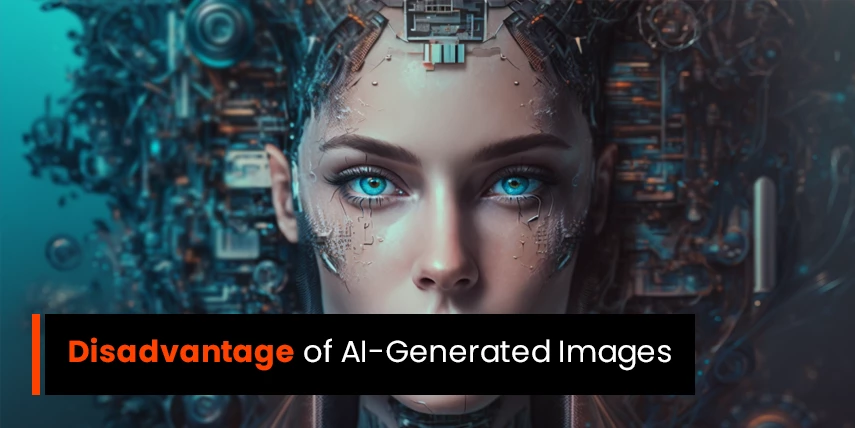

Sep 04, 2023
439
There has been an increase in AI images of women from all over the world going viral on social media in recent months. These images, produced by generative AI models, feature women of all ages, races, and ethnicities and are frequently hyper-realistic.The AI model Midjourney's series of images is among the best-known examples. The pictures show women from various nations, including Nigeria, China, and India. They are all strikingly beautiful, with flawless skin and delicate features. The pictures have gone viral on Tiktok, as people are appalled to see the most beautiful women created by AI. Another well-known instance is a collection of pictures made by the AI model DALL-E 2.
Women are shown in a variety of contexts in the pictures, including at work, at home, and out with friends. They all have different body types and facial features, and they are all diverse. The popularity of these AI images of Asian women has sparked a discussion on the definition of beauty and how technology affects how we perceive the world. Some claim that the images promote unattainable standards of beauty and are unrealistic. Others counter that the pictures simply display the variety of beauty that exists in the world. Regardless of one's viewpoint, there is no denying that these images are profoundly changing how we perceive women. These pictures question conventional ideas of beauty and promote a more inclusive and diverse definition of beauty.
Disadvantage of AI-generated Images

While we come across AI most beautiful face and they are indeed a treat for the eyes,, they also have some drawbacks, particularly for women. To ensure ethical and responsible use of AI images of women, it is critical to take into account the following cons:
Reinforcement of Unrealistic Beauty Standards
AI-generated pictures can perpetuate unrealistic beauty standards. AI may exacerbate body image issues and low self-esteem in people who compare themselves to these unrealistic ideals by producing flawless and idealized depictions of women. By creating flawless and idealized depictions of women, AI may contribute to body image issues and low self-esteem among individuals who compare themselves to these unattainable ideals.
Potential for Misuse
AI-generated images could be used to make deep-fake porn or phony social media profiles, among other harmful things. This abuse can result in character assassination, extortion, or harassment, which disproportionately affects women, who are frequently the targets of such nefarious activities.
Privacy Concerns
AI can generate lifelike images of people based on publicly available photos or data. This poses serious privacy issues because people's likenesses might be used in various contexts without their permission, potentially infringing on their right to privacy.
Ethical Dilemmas
The creation of artificially created images can raise ethical dilemmas regarding consent. Unauthorized use of a person's likeness in an AI-generated image can raise ethical and legal concerns, particularly when those images are used for promotional or commercial purposes.
Feelings of Objectification
These images may inadvertently contribute to the objectification of women. The harmful idea that a woman's value is based on her appearance can be reinforced when AI is used to produce idealized and beautiful images of women.
Lack of Authenticity
Pictures created by AI image generators lack the authenticity and originality of human-made content. The emotional resonance and connection that real people bring to visual storytelling and advertising may be absent from them, which could lessen the overall impact of marketing and media campaigns.
Challenges in Detecting Deep Fakes
As such images become increasingly sophisticated, it becomes more challenging to detect deep-fake content. This poses a risk for individuals who may unknowingly encounter manipulated images or videos featuring women, making it difficult to discern fact from fiction.
AI Images of Women in 2023 - A Blessing or a Curse?
In today's digital world, AI-generated images of women are a potent double-edged sword. These pictures have the potential, on the one hand, to revolutionize various industries, promote diversity and representation, and challenge conventional beauty industries, ranging from advertising to the arts and fashion. They broaden the scope of what is conceivable in the visual domain while providing fresh avenues for creativity and self-expression.
The ethical issues and potential negative effects related to AI-generated images of women must be acknowledged, though. These concerns include the upkeep of absurd beauty standards, the potential for abuse, privacy issues, and the objectification of women. Responsible and ethical use must continue to be at the forefront of our considerations as we investigate the capabilities of AI in image generation.
We must balance innovation and responsibility as we navigate this dynamic environment. To achieve this, it is necessary to establish precise rules and regulations, increase public awareness of the implications of AI-generated images, and actively participate in conversations about those impacts. By doing this, we can make the most of AI's transformative potential while ensuring that women are represented in these images in a way that is respectful and empowering, helping to create a society that is more diverse and compassionate.
